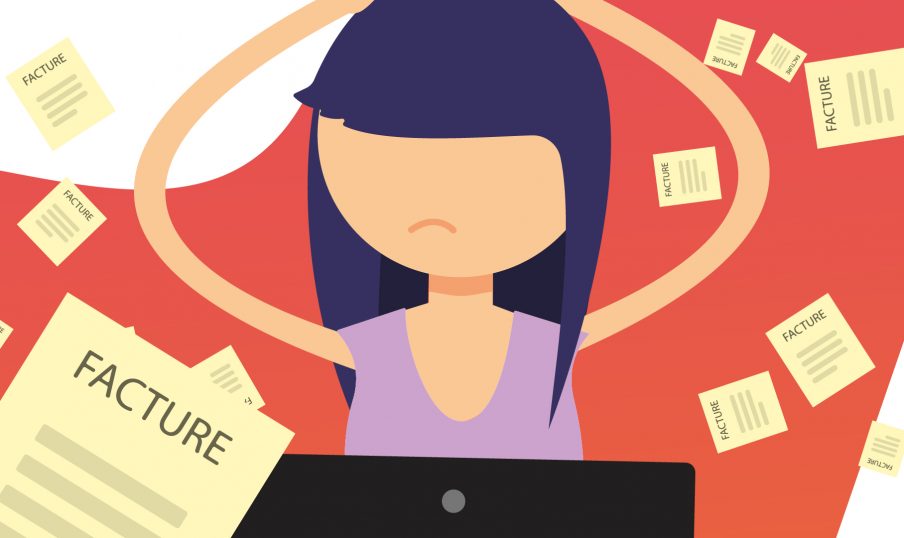
Do you have several outstanding loans and are you having trouble making your monthly payments? You are then afraid to find yourself in a situation of over indebtedness. What can you do to protect yourself? No need to panic! In this article, you will discover all our advices to keep control of your expenses and avoid the spiral of overindebtedness.
What is overindebtedness?
What exactly is overindebtedness? And what are the causes ?
Overindebtedness: the definition
In 2020, nearly 110,000 cases of overindebtedness were filed with the Banque de France¹. This scourge affects many families, caught in a spiral of increasing financial instability. The Consumer Code describes overindebtedness as “the manifest impossibility of meeting all of one’s non-professional debts due and payable”. Once installed, this situation worsens with each passing month, as people accumulate more and more debts and find themselves totally unable to pay their rent, monthly credit payments and other current expenses.
Causes of overindebtedness
Overindebtedness never happens by chance. We can distinguish two main causes leading to this situation:
- Unexpected personal, professional or family events (divorce, redundancy, illness…);
- Poor budget management.
Unexpected events can suddenly upset a family’s financial balance, blocking the ability to pay expenses and repay loans.
As for budget management, it often leads to overindebtedness through risky behaviors such as
- Excessive accumulation of loans (especially to pay off older loans);
- Not declaring all outstanding loans when applying for a new loan;
- Expenditures higher than earned income.
Over-indebtedness: what to do to avoid it?
Are you wondering how to avoid getting into overindebtedness? By taking certain precautions, being aware of the risks and managing your budget rigorously, you have every chance of never facing this situation!
Avoid over-indebtedness by regularly evaluating your financial health
To control your budget and maintain your ability to pay and repay, it is essential to keep an eye on your finances. To do this, it is advisable to draw up a table (on computer or on paper) allowing you to clearly visualize :
- Your fixed income ;
- Your additional income;
- Your fixed expenses (charges, rent, monthly credit payments, etc.);
- Your current expenses (food shopping…);
- Your exceptional expenses (leisure, vacations, repairs, etc.).
Your budget thus detailed, you gain a precise vision of your capacities of payment and of the remainder to live which you have after payment of all your current expenditure.
Knowing your ability to repay
You have probably already heard about the danger of personal loans, granted without any terms by many organizations. These loans are involved in many situations of overindebtedness. What can you do to avoid the trap of consumer loans?
Very easy to obtain, these loans are generally granted online in a very fast way. Without a real and objective consideration of your debt ratio, you can quickly find yourself overwhelmed by events!
Before taking out a loan, it is imperative to know your repayment capacity and not to overestimate it. Do not borrow excessively and always be reasonable: only take out loans that you can repay.
The 33% rule is very useful in this respect: make sure that your debt ratio (i.e. all the charges and monthly payments you pay each month) does not exceed 33% of your income.
This 33% rate is systematically taken into consideration by the banks before granting a credit.
Putting up safety barriers
To avoid overindebtedness, it is essential to secure your finances as much as possible. To do this, make sure you get the best loan terms. Don’t accept the first offer that comes along! Take advantage of the competition and carefully study the interest rate that is offered to you.
It can also be useful to subscribe to an insurance for your most important credits, which offers you an additional protection against unforeseen events which could unbalance your capacities of repayment.
Using a MyPCS rechargeable payment card can also help you manage your budget better. This card eliminates any risk of overdraft and allows you to control your spending. For example, you can set aside a certain amount of money for entertainment or shopping and put it on this card to make sure you don’t go over your budget.
Finally, get into the habit of saving as much as possible! Putting money aside every month allows you to face hard times, thanks to a precious reserve of money.
I am in over-indebtedness: what to do?
You are overdrawn at the end of each month and you are drowning in reminders for rent, electricity and monthly credit payments? Are you overwhelmed by debts and the spiral of overindebtedness is gradually engulfing you? Don’t panic! Fortunately, there are solutions to get out of it.
If you are wondering how to get out of over-indebtedness, you should know that it is above all necessary to face the situation. Don’t just sit back, take charge! Action always leads to a solution! Start by contacting your creditors to ask them for an arrangement to repay the sums you owe them. For example, renegotiating a mortgage often allows you to reduce your monthly expenses.
Credit consolidation is also a possible solution to overindebtedness. Some organizations can indeed offer you a repurchase of your current credits, in order to gather them and to reduce your monthly payments.
Another way to deal with over-indebtedness is to sort out your possessions and sell some furniture or valuable objects.
The last option in the event of an unmanageable debt situation is to file an application with the Banque de France. If your application is accepted, you will benefit from an adapted over-indebtedness plan and assistance in order to effectively get out of this situation!
¹Source : https://particuliers.banque-france.fr/surendettement/chiffres-cles-et-bilan-national


